Musk, Greene and senators pressure Ukrainian newspaper Texty.org.ua over publication of research on critics of US aid to Ukraine
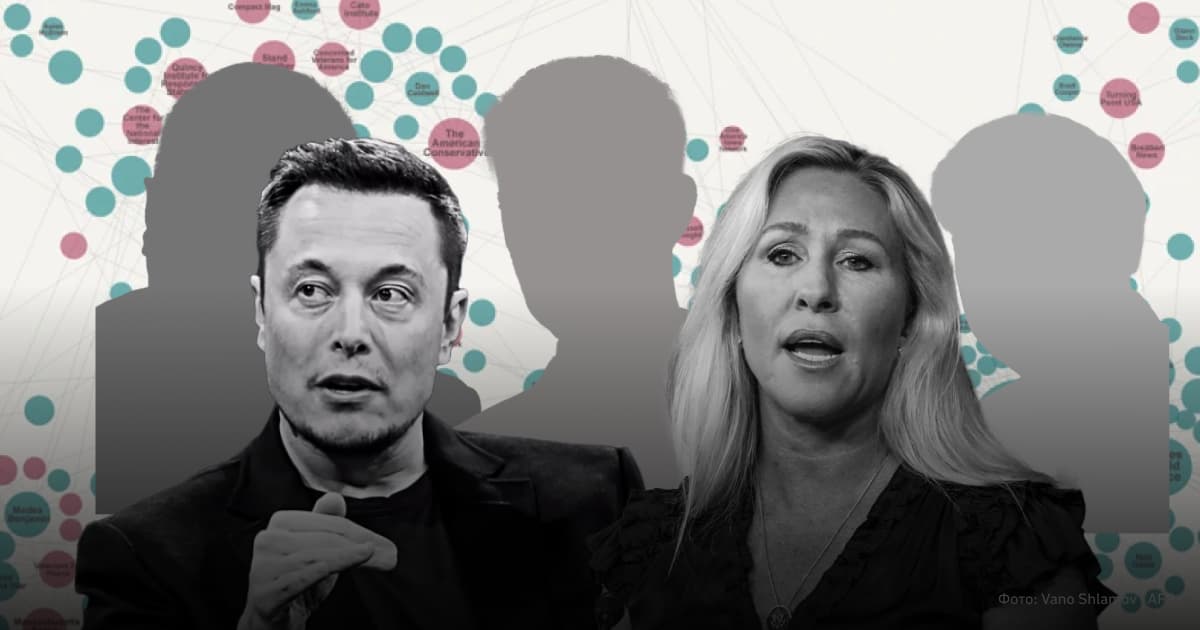
On June 6, the Ukrainian data journalism agency Texty.org.ua published a "Roller Coaster" study. From Trumpists to Communists. The forces in the U.S. impeding aid to Ukraine and how they do it. It contains a list of organisations and individuals in the United States who oppose aid to Ukraine. The researchers also compared the statements of those opposed to supporting Ukraine with the narratives spread by Russian propaganda.
Following the article, some US Senators called for the newspaper to be defunded, and Elon Musk wrote in X that Texty.org.ua should be added to the list of terrorist organisations.
Read our explainer about the Texty.org.ua article and the reaction to it.
Roller Coaster
Texty.org.ua begins its research with the examples of Congressman Mark Amodei and Senators Tom Cotton and Lindsey Graham, who have both supported and voted against aid to Ukraine.
The journalists write that they examined the environment that facilitates them in the political, media and expert spheres to understand why such swings occur.
They also examined how the individuals and organisations in the study interact with each other in the public sphere and how some interact with Russian media and state institutions. The newspaper writes that all published data on individuals and organisations are taken from open, including official sources.
The list of those opposed to providing aid to Ukraine includes 388 individuals and 76 organisations, including politicians, political movements and groups, media and journalists, experts and think tanks (some of the figures belong to two different spheres at the same time).
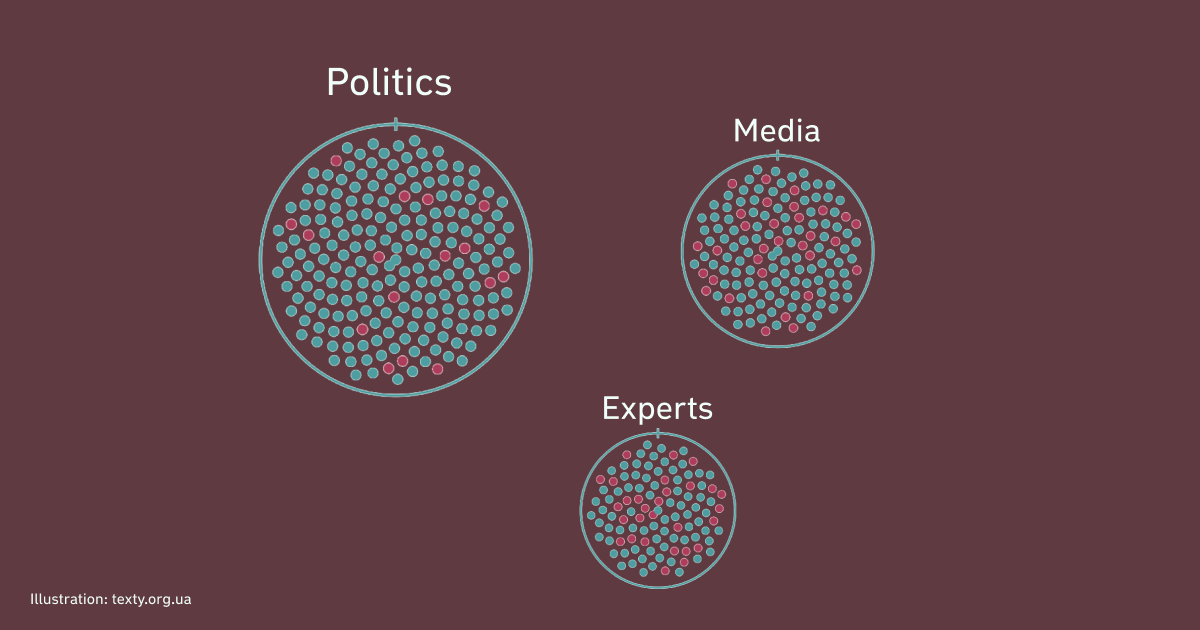
Just over half of the respondents belong to right-wing movements, mostly politicians belonging to the Trump wing of the Republican Party. About one in eight belongs to the left, while the rest do not identify with any ideological movement.
The list of defendants also includes SpaceX founder Elon Musk and PayPal and Palantir founder Peter Thiel. Texty.org.ua notes that their companies' technologies are helping Ukrainians in the war. In particular, SpaceX's Starlink terminals give the Ukrainian military access to communications in combat zones without terrestrial signal transmission channels.
At the same time, the newspaper writes that Russian propaganda has increased since Elon Musk acquired Twitter (now X). Musk regularly broadcasts to his 187 million followers "a highly sceptical view of US financial support for Ukraine, in line with Russian narratives".
According to Texty.org.ua, Peter Thiel is a supporter of isolationism in modern US politics and one of the key investors in the most influential Republicans (Blake Masters and J.D. Vance) who are blocking aid to Ukraine.
In 2021, Peter Thiel, J.D. Vance and Vivek Ramaswamy invested in the social network Rumble, which in 2022 became an alternative platform for Donald Trump, who was then banned from Twitter and blocked from YouTube by the Russian state media Russia Today (RT).

Ramaswamy dropped out of the presidential race in favour of Trump. He said that "Putin was able to seize eastern Ukraine because there was no resistance there like in the rest of Ukraine" because "the eastern regions of Ukraine are Russian-speaking and do not even consider themselves part of Ukraine" (In October 2022, six months after the full-scale invasion began, the Kyiv International Institute of Sociology surveyed Ukrainians' sense of belonging to the resistance against the Russians. In it, 6% of respondents from eastern Ukraine said they did not consider themselves part of the resistance. 87% of Russian-speaking Ukrainians said they always or sometimes considered themselves part of the national resistance — Svidomi).
The list also includes US presidential candidate Donald Trump, Congresswoman Marjorie Taylor Green, host Tucker Carlson, Congressman Ron Paul, the website Grayzone and its founder Max Blumenthal, the left-wing anti-war communities CODEPINK and Massachusetts Peace Action, the far-right website Infowars, the Heritage Foundation and others.
Fifty individuals and organisations cooperate with Russian media and initiatives funded by Russian authorities.
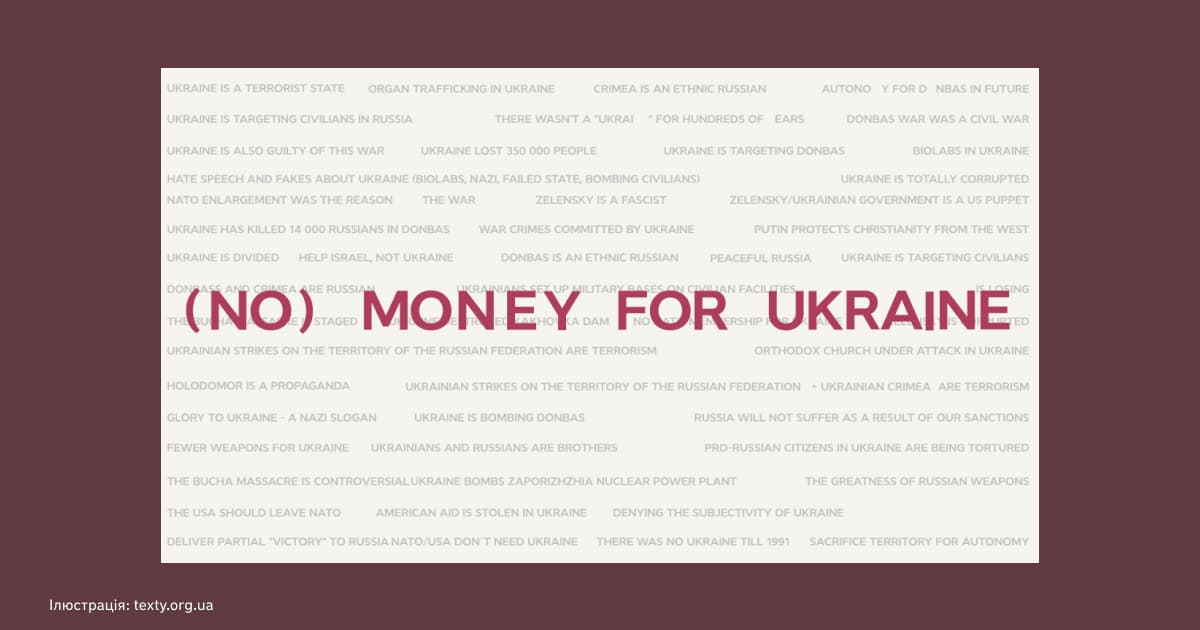
Texty.org.ua writes that although most of the individuals in their study have no proven links to Russians, their arguments about Ukraine repeat key messages of Russian propaganda aimed at depriving Ukrainians of Western weapons and funds.
Enemy list
This is how a list of opponents of support for Ukraine, compiled by Texty.org.ua, was named on the social network X. Inna Hadzynska, the deputy editor-in-chief of the newspaper and the main author of the article "Roller Coaster", tells Svidomi that hatred against the editorial board came in waves whenever one of the influencers mentioned the research in X. She says that because of the time difference with the United States, it felt like "the city falling asleep and the mafia waking up" because the waves of discussion took place when it was night in Ukraine.
On June 7, the director of the Ron Paul Institute, Daniel McAdams, published an article reacting to the study. He concluded by pointing out that Texty.org.ua has longstanding ties to the US government: the newspaper's founder, Anatolii Bondarenko, is listed on the US government website as a participant in the US State Department's TechCamp project, and Texty.org.ua is an implementing partner of the US Agency for International Development's (USAID) Transparency and Accountability in Public Administration and Services project.
"One wonders how, for example, former US President Donald Trump and dozens of members of the US Congress will react when they hear that US tax dollars are being sent to Ukraine for US-backed Ukrainian organisations to create "hate lists" and "kill lists" of patriotic Americans like themselves," Daniel McAdams concluded his column.
Texty.org.ua responded to his statement about Anatolii Bondarenko. They replied that he volunteered as a pro bono data journalism coach at TechCamp in 2013, 2014, and 2015. Bondarenko co-founded Texty.org.ua with Roman Kulchytskyi in 2010. The newspaper specialises in data projects and writing news, reports and analytical articles.
"Interestingly, this message was immediately translated into Russian and began to be shared on Russian propaganda Telegram channels," Hadzynska said.
The US Embassy in Ukraine responded to RFE/RL's request for comment by saying that the US State Department was not involved in the publication of the study.
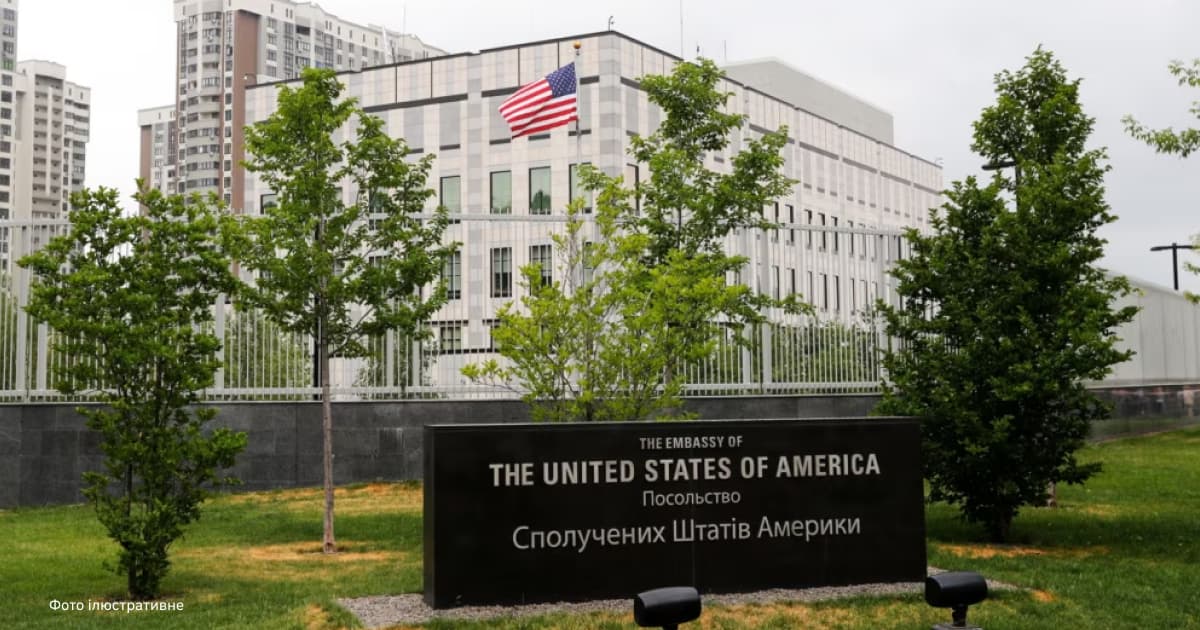
Texty.org.ua states that information from the website of the Ron Paul Institute has been disseminated in X by other conservative newspapers, as well as far-right and left-wing American activists, attacking the editorial board of Texty.org.ua and the authors of the article.
On Saturday evening, June 8, human rights activist Laura Loomer posted on her X account that Texty.org.ua had created an "enemies list" and tagged the authors of the study in the post. However, the activist confused some users with other accounts and tagged people who were not part of the editorial team.
"And so it went. There are about 700 reposts. I check my X because I see notifications, but they don't write anything new. I looked for constructive criticism, but there was none. It looked like all the X trolls had attacked us. And then they started writing to our editorial mail," says the study's author.
Marjorie Taylor Green, a member of the US Congress and an active opponent of aid to Ukraine, said on X that Ukrainian President Volodymyr Zelenskyy was behind the publication. Taylor Green called him a "true enemy of democracy" who had abolished elections, freedom of speech, religion and the press.
On June 12, FOX News reported that Senator J.D. Vance and US Representative Matt Gaetz had asked US Secretary of State Anthony Blinken to provide them with information about the Ukrainian NGO Texty.org.ua by June 28.
The authors of the letter also appealed to the House Appropriations Committee to cut off US support for Texty.org.ua. The committee passed the resolution on Tuesday.
"We did not intend to interfere in the internal politics of the United States. We were researching an issue that directly affects Ukraine. We got a lot of criticism for this table, but we are doing data journalism, so we simply systematised the data. We described the research methodology and provided links to the quotes, so when people ask where we got them from, they can follow them and draw their conclusions," says Inna Hadzynska.
Elon Musk called for Texty.org.ua to be added to the list of terrorist organisations.
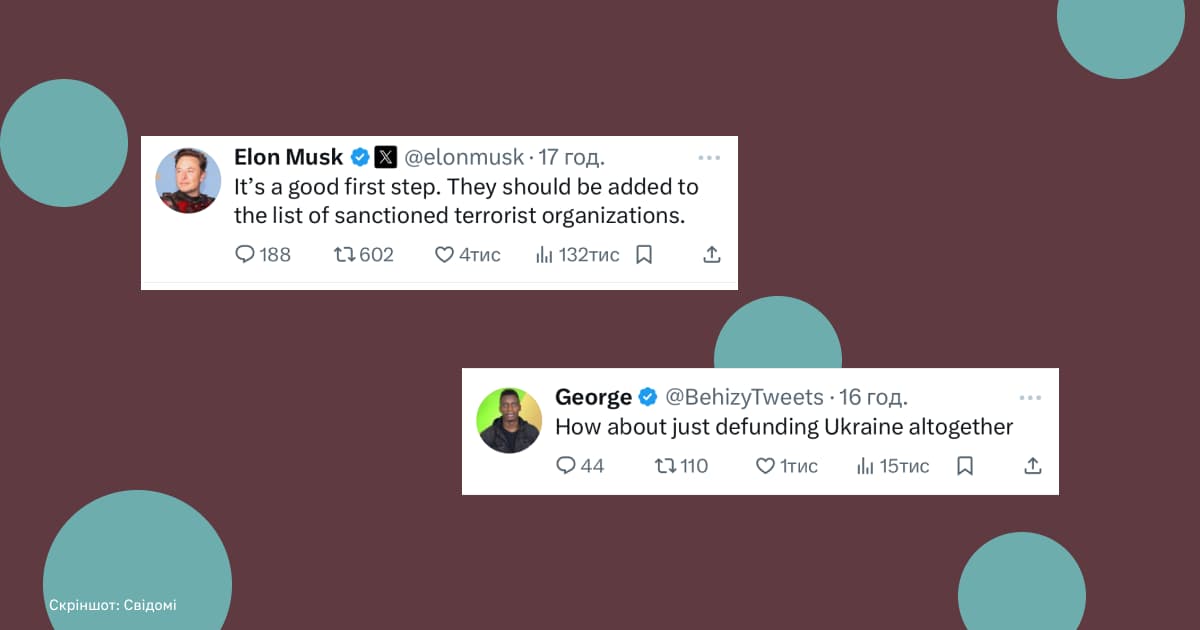
"We view this campaign as an attack on freedom of speech and a display of chauvinism against the citizens of Ukraine. Our critics believe that we do not have the right to investigate the streams of false information they produce about our country and us, simply because they are U.S. citizens and we are not," Texty.org.ua wrote.
The editorial board notes that it does not call the accused in its research enemies of Ukraine, does not question or condemn their right to freedom of expression, but only notes the fact that they oppose support for Ukraine and that the arguments they present are in line with the narratives of Russian propaganda.
Inna Hadzynska adds that the pressure wave on the publication looks like a planned information attack, as the messages were posted and spread quickly.
"Another interesting dynamic is that this [study] was first called a ‘hate list’ and a ‘kill list’, and when it reached the level of Republican congressmen, one of whom called for the defunding of the editorial board, he wrote a ‘watch list’. So, the audience was made to feel as negative as possible. I think it was used for political hype," says the author.
The community of Ukrainian journalists and experts from the media NGO Mediarukh strongly condemned the wave of pressure, slander and threats received by Texty.org.ua.
The Ukrainian journalists also wrote that they confirmed Texty.org.ua's reputation as a completely independent newspaper and rejected Marjorie Taylor Green's accusations that Volodymyr Zelenskyy was involved in the publication of the study.
"All this intense pressure on the Ukrainian investigative media is coming from representatives and supporters of the US Republican Party, which is supposed to defend freedom of speech as a fundamental component of democracy and be a model for other countries,"
Mediarukh said in a statement.
Ukrainian media professionals called on the US Congress and Senate to stop putting pressure on Texty.org.ua and not to use Ukrainian media for the internal American political struggle against the backdrop of the upcoming US elections, and to conduct their investigation into whether the Texty.org.ua material proves that the theses being spread in the US are in line with "aggressive Kremlin propaganda".
Alberto Cairo, a data visualisation specialist, and Nina Jankovic, a media expert and disinformation researcher, also supported the editorial team. Jankovic called Texty.org.ua "one of the most intrepid, fearless Ukrainian investigative outlets".
"We are not claiming this is a journalistic investigation and that we have uncovered some hidden truth. We didn't say anything new. We just collected and structured what had already been published and showed the evidence base. We expected the research to be noticed in the expert community, but we did not expect Elon Musk to mention it," concludes the deputy editor-in-chief of Texty.org.ua.


